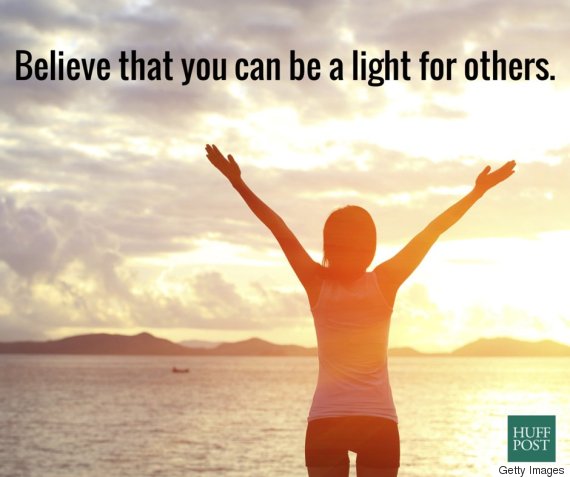
Think back to the last time to you gazed out over a mountaintop after a long hike, breathed in the salty air after a good swim at the beach, or even sat in unadulterated silence after finishing a book you simply couldn't put down. It turns out that sense of awe can not only provide a powerful emotional and spiritual experience, but also promote altruistic, helpful and positive social behavior.
A set of five new behavioral experiments led by a team of researchers at the University of California, Irvine, and recently published by the American Psychological Association, suggests that when you sense something greater than yourself, you feel your self-importance diminish, shifting your focus toward the needs of the greater good. They also observed how their participants felt not just inclined to act with the interests of others in mind, but actually followed through with those intentions.
"Our investigation indicates that awe, although often fleeting and hard to describe, serves a vital social function," lead author Paul Piff, an assistant professor of psychology and social behavior at UC-Irvine, said in a statement. "By diminishing the emphasis on the individual self, awe may encourage people to forgo strict self-interest to improve the welfare of others."
In the first experiment, researchers submitted a questionnaire to 1,500 participants across the United States regarding how predisposed they were to the feeling of awe in the past. Upon completing the survey, the subjects were then organized in a game in which they were each given 10 raffle tickets and had to decide if they wanted to share any of them with other participants, and if so, how many. The result: Those who chose to give away tickets and showed generosity toward others were also people who previously stated a higher likelihood of experiencing awe.
The remaining experiments involved groups of subjects from 75 to 254 people, participating in activities designed to either inspire a sense of awe, maintain a neutral state or elicit another reaction entirely. Following the activities, the research team had each person participate in another activity designed to reveal their tendency toward pro-social behaviors (those that are helpful to others and, in some way, promote a sense of social acceptance or friendship). Aligning with the first experiment, each of these subsequent rounds significantly associated the feeling of awe with pro-social behaviors or tendencies.
"Across all these different elicitors of awe, we found the same sorts of effects -- people felt smaller, less self-important, and behaved in a more pro-social fashion," said Piff. "Might awe cause people to become more invested in the greater good, giving more to charity, volunteering to help others, or doing more to lessen their impact on the environment? Our research would suggest that the answer is yes."
Prior research suggests that the power of awe-inspiring experiences extends far beyond this pro-social behavior. These special moments, where time seems to stand still, can also help make us feel happier, more relaxed and more creative. Experiencing awe forces us to focus on the present and truly experience it for what it is. And often, it's during these moments when we can also experience the biggest transformations in our lives.

